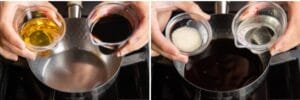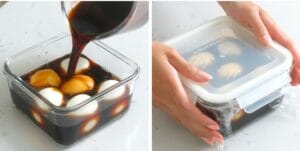There’s nothing quite like a perfectly cooked Ramen Egg Ajitama. As the velvety yolk oozes into the steaming hot broth, adding a richness and depth of flavor that takes this iconic dish to new heights.
I still remember the first time I tried authentic ramen on a trip to Japan. That glorious ajitama egg was love at first bite! I knew I had to learn how to recreate that magic at home.
After much experimentation in my kitchen, I’m thrilled to share my go-to Ramen Egg Ạitama recipe on the blog today. These soy sauce eggs, also called ajitama or ajitsuke tamago, are a breeze to whip up and make all the difference atop a bowl of noodles.
Not only are they amazing in ramen, but they also shine in bento boxes, salads, sandwiches…you name it! Their versatility is just one reason why they’ve fast become a staple in my meal prep lineup.
So if you love ramen as much as I do, grab an egg and let’s get cooking! I’m happy to walk through my tips and tricks for making these Japanese-marinated eggs perfectly jammy every time.
What is the egg in ramen called ?
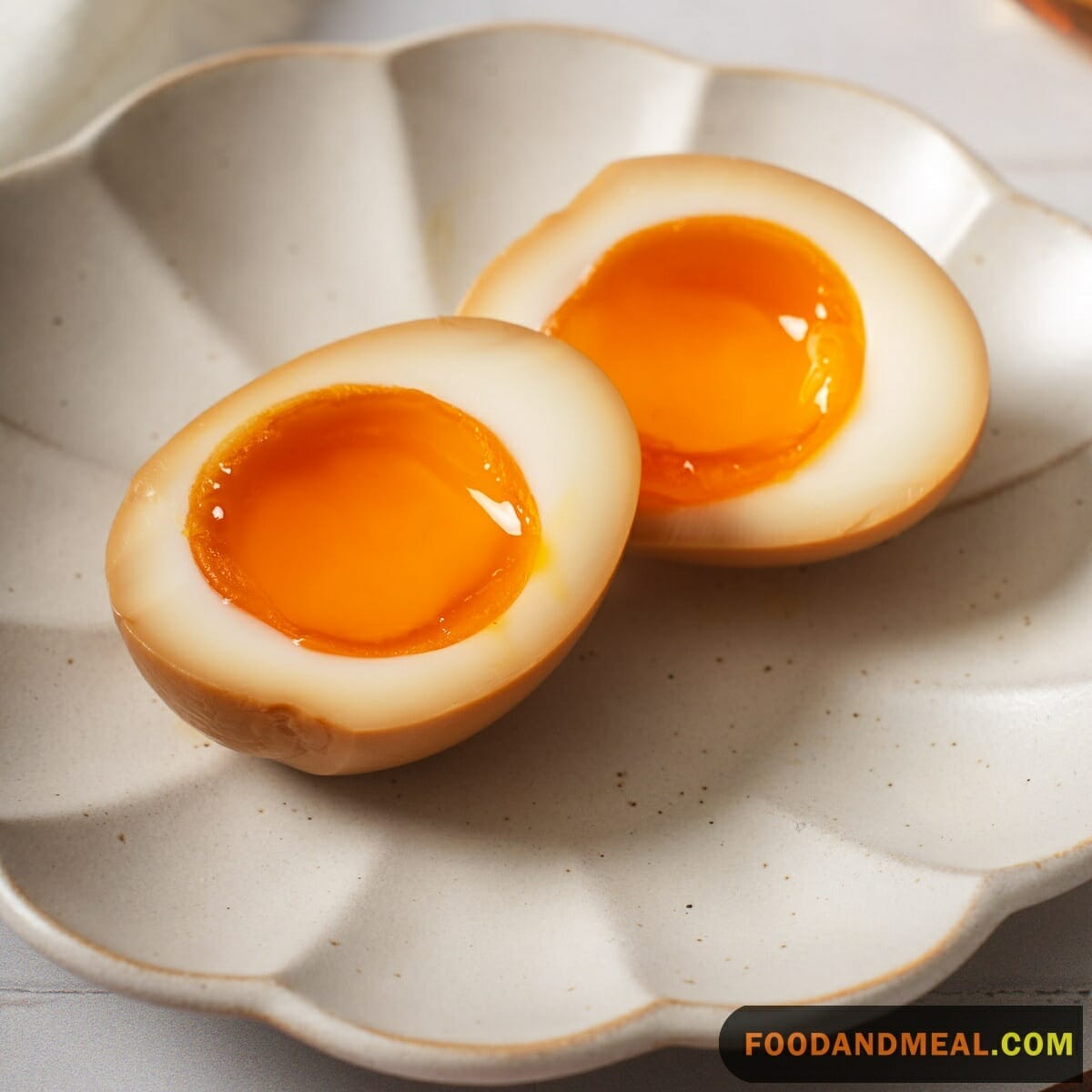
In the heart of a steaming bowl of ramen, nestled among the noodles and broth, lies a culinary gem known as Ajitsuke Tamago. More affectionately referred to as Ajitama, these marinated soft-boiled eggs are a testament to the simple beauty of Japanese cuisine. With their custardy whites and jammy yolks, they are a harmonious blend of sweet, salty, and umami flavors that dance on the palate. Each bite into an Ajitama is a moment of pure delight, the yolk’s richness perfectly complementing the soup’s savory depth. It’s no wonder that for many, a bowl of ramen feels incomplete without this delectable treasure. The Ajitama doesn’t just elevate the dish; it cradles the soul in comfort, making every ramen experience both memorable and deeply satisfying.
So, can you put an egg in ramen ?

The act of slipping an egg into the swirling, steamy embrace of a ramen bowl is nothing short of a culinary romance. It’s a simple gesture that whispers of comfort and home. Whether it’s a soft-boiled jewel with a sunset-hued yolk or a poached orb tenderly yielding to the touch of chopsticks, the egg melds with the broth in a warm, savory lullaby. It’s a versatile companion too; you can have it hard-boiled, scrambled, or even raw, stirred into the hot soup until it gently cooks, each method adding its own unique texture and flavor to the dish. Adding an egg to ramen is like giving a gift to your soul, a small luxury that elevates the humble noodle soup into a more complete and nourishing meal. It’s a testament to the egg’s transformative power, turning the ordinary into extraordinary with just a crack and a plop.
Ramen Egg Ajitama Recipes
Hard boiled Ajitama is a delicious, versatile dish that can be prepared with different ingredients and seasoning. The sauce makes an excellent side dish for Bento box lunch or as a topping for dinner. If you’re looking for a fast and easy way to make hard boiled Ajitama, it’s a good idea to start with a small pot. Usually, it takes seven to nine minutes to cook an egg.
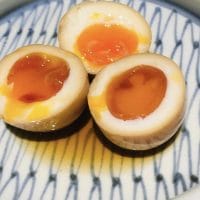
Ajitama Eggs
Equipment
Ingredients
- 2 cups water
- 1 cup seasoning liquid used for Pork Chashu or Chicken Chashu, teriyaki sauce
- ¼ cup mirin sweet rice wine
- 6 large eggs hardboiled and peeled
Instructions
- Put the water, chashu seasoning liquid, and mirin in a medium saucepan, and bring to a boil over medium-high heat.

- Method 1: Reduce to a simmer and add the hardboiled eggs. Simmer until the eggs are brown, about 10 minutes.

- Method 2: Add the eggs and cooled marinade into a large ziplock bag or a container with an airtight lid. Marinate in the refrigerator for at least 8 hours or overnight. Rotate the eggs after 4 hours for even coverage.

- Serve or Store in the refrigerator for a few days.

Video
Notes
Nutrition
© Food And Meal
This website provides approximate nutrition information for convenience and as a courtesy only. Nutrition data is gathered primarily from the Spoonacular Database, whenever available, or otherwise other online calculators.
Ramen Egg Ajitama in a Sous Vide Cooker
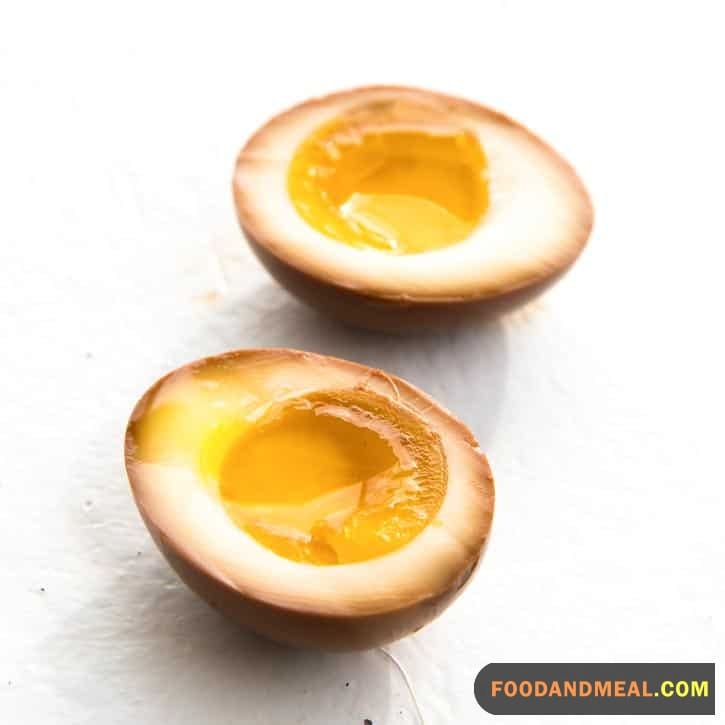
Making them using a sous vide cooker allows for precise temperature control, resulting in perfect consistency.
First, prepare a water bath with your sous vide to 64.5°C (148.1°F), aiming for eggs with just-set whites and custardy yolks. Carefully lower the eggs into the water and cook for about 45 minutes. Meanwhile, mix a marinade of soy sauce, mirin, sugar, and water.
Once the eggs are done, chill them in an ice bath before peeling. Submerge the peeled eggs in the marinade and let them soak for several hours, or even overnight for robust flavor. The result is a delightful symphony of textures and tastes that enhances the ramen experience, making each bite a moment to savor.
is egg in ramen good ?
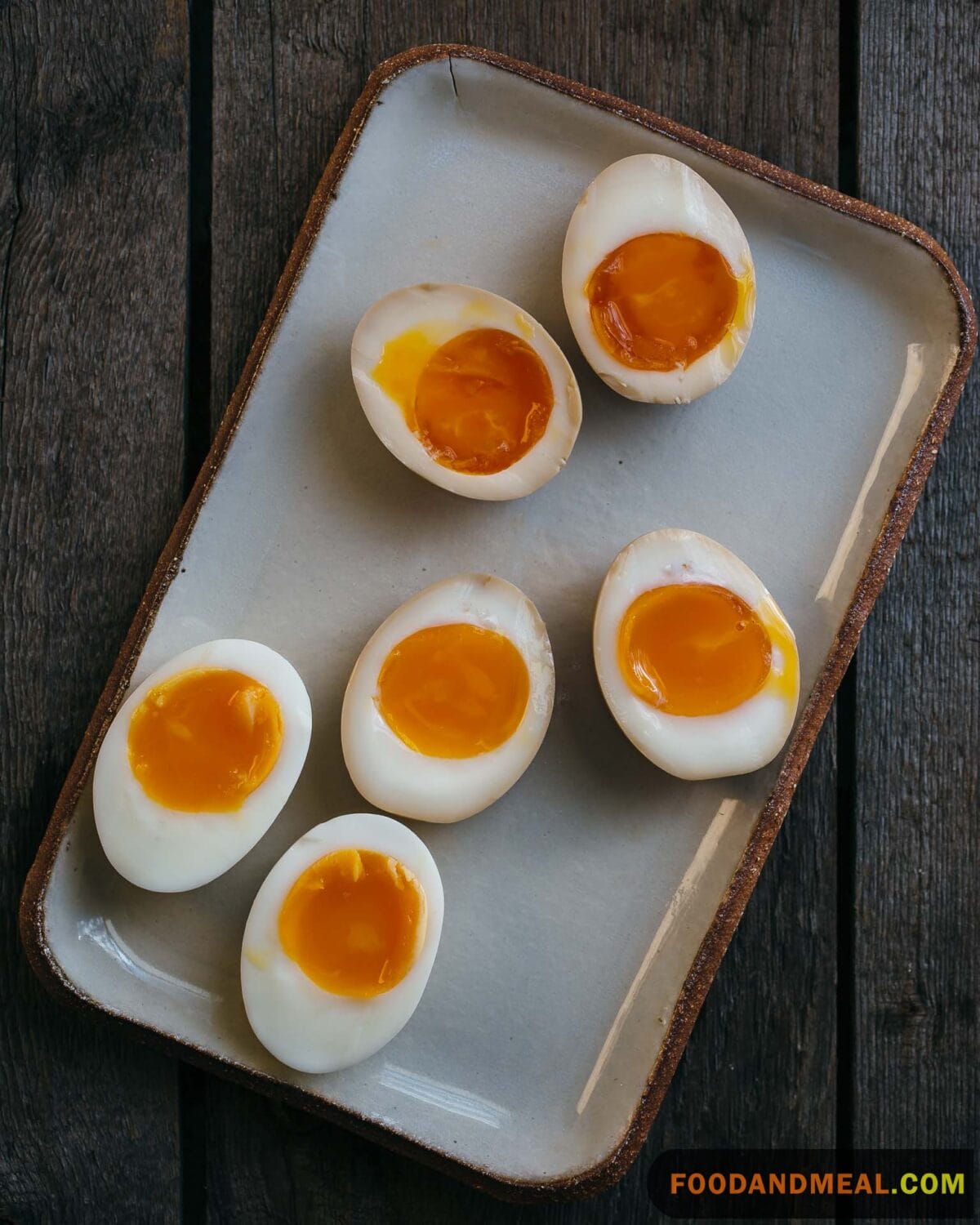
Egg in ramen is a wonderful addition that enhances the flavor and texture of the dish. The creamy yolk blends with the broth to create a richer, more savory flavor profile. Personally, I find that egg takes my ramen experience from good to great. The soft boiled egg with its jammy yolk adds a luxurious, velvety element that perfectly complements the chewy noodles and umami-rich broth.
I highly recommend trying egg in your ramen if you haven’t already. Start with a soft boiled or poached egg so the yolk stays runny and mixes into the broth. The texture and creaminess it provides is so satisfying. Just be careful not to overcook the egg or the yolk can become dry and chalky. A perfectly jammy ramen egg yolk that oozes into the noodles with each bite is sublime.
Expert Tips for making Ramen Eggs Ajitsuke Tamago
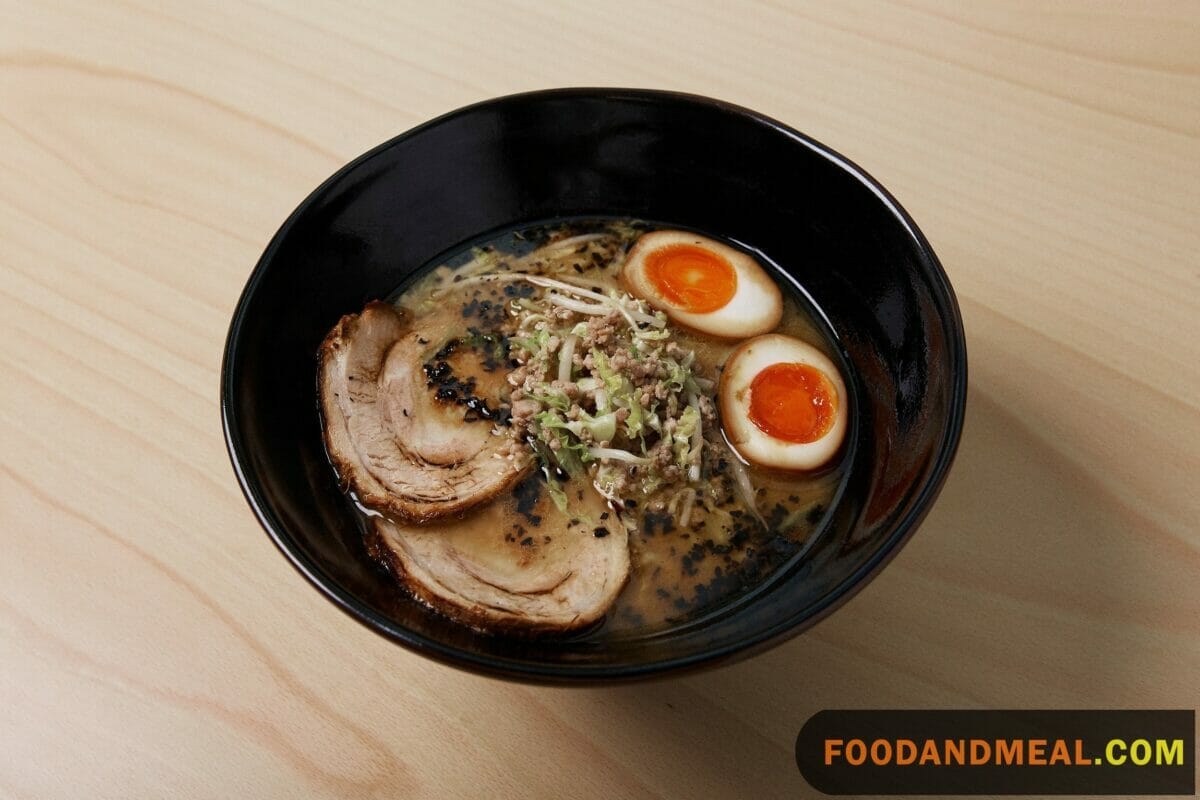
Cooking Tips
Begin by gently lowering your eggs into a pot of simmering water for exactly 6 minutes and 50 seconds—this precise timing often yields that coveted gooey yolk. Then, plunge them into an ice bath to halt the cooking process, ensuring a delicate texture.
Peeling the eggs can be a serene task; do it under a little stream of water to help the shell come away cleanly. For the marinade, balance is essential—combine soy sauce, mirin, sake, and sugar with a touch of garlic or ginger if you like a whisper of spice.
Let the eggs bathe in this mixture for at least 4 hours, though overnight is ideal for a deep, umami-rich flavor. When you slice the egg open and it reveals its perfectly jammy center, there’s a sense of accomplishment.
Serving Suggestions
Ramen Egg Ajitama goes wonderfully with ramen noodles, of course! The velvety yolk mixes into the broth, adding richness. Try topping bowls of ramen with a halved ramen egg.
Beyond ramen, these soy sauce eggs also pair nicely with rice dishes. Add one to a bowl of rice for easy protein. Or slice them up and enjoy in rice balls. Their flavor complements the sweet rice nicely.
You can also top salads with sliced ramen eggs. The jammy yolks make a nice, creamy dressing on leafy greens. They would go well in an Asian noodle salad too.
Additionally, ramen eggs make tasty sandwich fillings. Slice one up and add to your favorite sandwich for extra creaminess – whether meat, veggie, or egg salad.
I also love putting them in bento boxes paired with vegetables, fruits, nuts and other finger foods. Their versatility makes them perfect for on-the-go meals.
So be sure to keep a batch of these tasty ajitsuke tamago eggs in your fridge! They can instantly elevate so many dishes beyond just ramen with their signature soy sauce flavor.
FAQs about Ramen Marinated Eggs
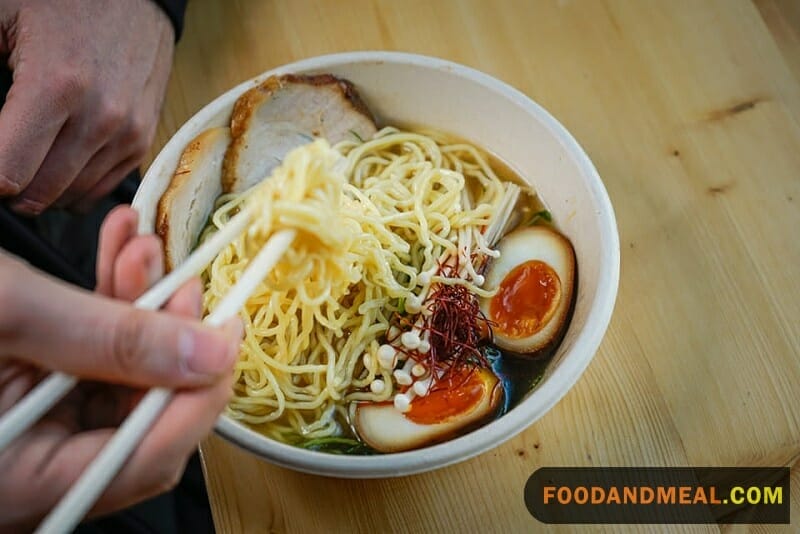
- What is the difference between Ajitama eggs and onsen eggs?Ajitama eggs and onsen eggs are both types of soft-boiled eggs commonly used in ramen, but they differ in preparation. Ajitama eggs are marinated in a soy-based sauce for added flavor, while onsen eggs are typically cooked at a lower temperature, resulting in a creamier texture without marination.
- What is the difference between Nitamago and Ajitama?Nitamago and Ajitama both refer to marinated soft-boiled eggs used in ramen. The terms are often used interchangeably, but some might make a distinction. Nitamago may refer to eggs marinated with a sweet soy-based sauce, while Ajitama may have variations in the marinade, which could include soy sauce, mirin, sake, and other seasonings.
- Can you reuse Ajitama egg marinade?Reusing Ajitama egg marinade is not recommended. The marinade may have absorbed flavors from the eggs and could introduce food safety concerns. It’s best to make a fresh batch of marinade for each round of Ajitama eggs.
- Can I store leftover Ramen Egg Ajitama?Yes, you can store any leftover Ramen Ajitama in an airtight container in the refrigerator for up to two days. To maintain the texture and flavor, store the broth, noodles, and toppings separately.
- Can I make Ramen ajitsuke tamago vegetarian or vegan?Absolutely! You can create a vegetarian or vegan version by using vegetable broth and substituting eggs with tofu or a plant-based egg alternative.
- Can I prepare the soft-boiled eggs in advance?Yes, you can prepare the soft-boiled eggs a day or two in advance and store them in the refrigerator. Warm them in hot water before serving.
- What if my eggs crack during cooking?If an egg cracks during cooking, you can continue to cook it. The egg white may not be perfectly shaped, but the flavor will still be delightful.
- Can I reheat Ramen ajitsuke tamago?It’s best to enjoy Ramen Ajitama immediately to maintain the ideal texture of the soft-boiled eggs. If reheating is necessary, gently warm the broth and noodles, then add the soft-boiled eggs just before serving to retain their runny yolk.
Conclution
I hope this easy Ramen Egg Ạitama recipe inspires you to add these tasty ajitama to your next bowl of noodles or rice dish! They take ramen to new heights, but also shine in so many other meals.
Let me know in the comments how they turn out and what creative ways you enjoy them. And don’t forget to subscribe to the Food and Meal for more Japanese cooking inspiration, easy dinner ideas, and meal prep tips!
I'm James F Anderson, a noted sous chef from London and a Le Cordon Bleu alumnus. My career began in a Michelin-starred Parisian eatery, where my blend of classic and contemporary cooking, using seasonal ingredients, earned accolades. Recognized in culinary publications and on cooking shows, I’m committed to mentoring aspiring chefs and delivering memorable dining experiences, marking me as a standout talent in the culinary world.



